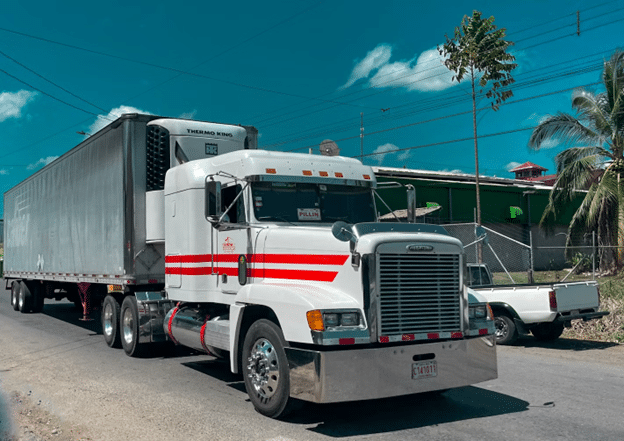Image: unsplash
Trucking has seen a whirlwind of changes over the recent past, some of them going full-throttle in 2024. From electric and hybrid trucks to new fuel alternatives, the industry keeps evolving. These advancements don’t just aim for greener roads – they reshape how drivers operate.
Wondering how these innovations impact you? Get ready to explore the cutting-edge trends making waves in trucking today. Dive into practical insights and see how training programs equip drivers with skills for modern challenges.
Let’s get rolling!
Alternative Fuel Sources Changing the Game
From biodiesel to compressed natural gas and liquefied natural gas, various alternatives are giving diesel a run for its money as engine fuel. This is the case as gradually but steadily, companies increasingly turn to renewable energy sources, cutting emissions while lowering costs.
Biodiesel, made from vegetable oils or animal fats, offers a cleaner burn than traditional diesel. Compressed natural gas reduces greenhouse gasses and can be domestically sourced.
Using these alternative fuels not only makes environmental sense but also improves sustainability efforts in logistics. This shift showcases trucking’s adaptability and forward-thinking mindset.
Electric and Hybrid Trucks Leading the Charge
As it takes shape and grows in popularity, e-mobility is perhaps the best thing to ever happen to the transportation industry for decades. Companies like Tesla and Nikola spearhead this shift with cutting-edge electric vehicles, including heavy trucks.
Today, close to 13,000 electric and hybrid trucks roam our highways, reducing noise pollution while lowering carbon footprints.
Tesla’s Semi boasts a range of up to 500 miles on a single charge. Meanwhile, Nikola’s hydrogen-electric models offer swift refueling times alongside impressive mileage.
This wave of innovation brings cleaner roads and paves the way for sustainable trucking solutions.
Innovative Approaches in Driver Training
As new innovations in transportation technology emerge, driving schools also have to adapt and prepare learners for the changing landscape.
Modern trucking requires a blend of traditional skills and tech-savviness. Today’s training programs focus on everything from electronic logging devices (ELDs) to advanced driver assistance systems (ADAS).
Institutions such as NETTTS provide comprehensive education through their experienced CDL driving instructors. These programs ensure that new drivers can handle electric trucks, use telematics efficiently, and understand alternative fuel systems.
For example, practical sessions often include hands-on experience with hybrid engines or navigating digital dashboards – skills crucial for contemporary trucking operations.
The future demands adaptability; forward-thinking training institutes play a pivotal role in equipping drivers with these essential capabilities.
Telematics Transforming Fleet Management
GPS tracking, driver behavior monitoring, fuel management, and preventive maintenance. All these features of telematics are transforming fleet management into a high-tech operation.
Fleet managers leverage these systems to optimize operations through:
- Real-time location tracking for better route planning
- Monitoring driver habits to improve safety and reduce risks
- Fuel usage analytics for cost-saving measures
- Predictive maintenance alerts to avoid unexpected breakdowns
By integrating telematics, companies streamline logistics and enhance operational efficiency. Data-driven insights enable proactive decision-making, reducing downtime and maximizing productivity. This technological shift represents the future of efficient fleet management in trucking.
Eco-friendly Practices and Sustainability Trends
As multiple industries around the globe shift to focus on reducing emissions, conserving resources, and embracing renewable energy, one this is conspicuously evident. Trucking companies are increasingly adopting eco-friendly practices that reshape industry standards.
These green initiatives include:
- Using aerodynamic designs to cut fuel consumption
- Implementing idle-reduction technologies to lower emissions
- Switching to low-resistance tires for better fuel efficiency
- Incorporating electric and hybrid vehicles into fleets
Such measures lead to a significant decrease in the carbon footprint. Plus, these steps align with global sustainability goals while offering long-term cost benefits. Adopting these trends showcases a commitment not just to business success but also to environmental responsibility in modern trucking.
Advanced Driver Assistance Systems Improving Safety
When behind the wheel of a heavy rig, you can’t overlook the importance of advanced driver assistance systems (ADAS). These tech features range from adaptive cruise control to lane-keeping assist and collision avoidance. ADAS helps drivers by monitoring road conditions and providing real-time alerts, significantly reducing accident risks.
Additionally, automatic braking and blind-spot detection further enhance safety. By integrating these systems into fleets, trucking companies create a safer driving environment for their operators while boosting overall efficiency on the road.
Predictive Maintenance Using AI
Just like artificial intelligence is revolutionizing warehouse management and equipment handling, it is reshaping truck maintenance. Predictive analytics now forecast issues before they cause breakdowns, keeping fleets on the road longer.
AI-driven systems monitor engine performance and wear patterns in real time, flagging potential problems early. This preemptive approach reduces downtime and repair costs, ensuring trucks run smoothly while enhancing overall operational efficiency.
There you have it! Embracing these innovations in trucking ensures a future of increased efficiency, sustainability, and safety, solidifying the industry’s pivotal role in global logistics.



